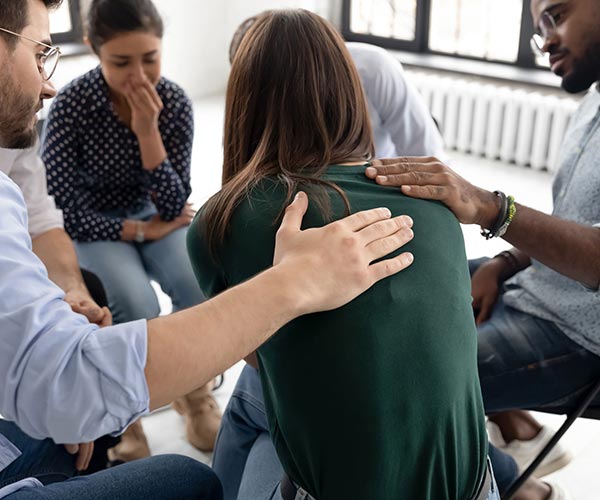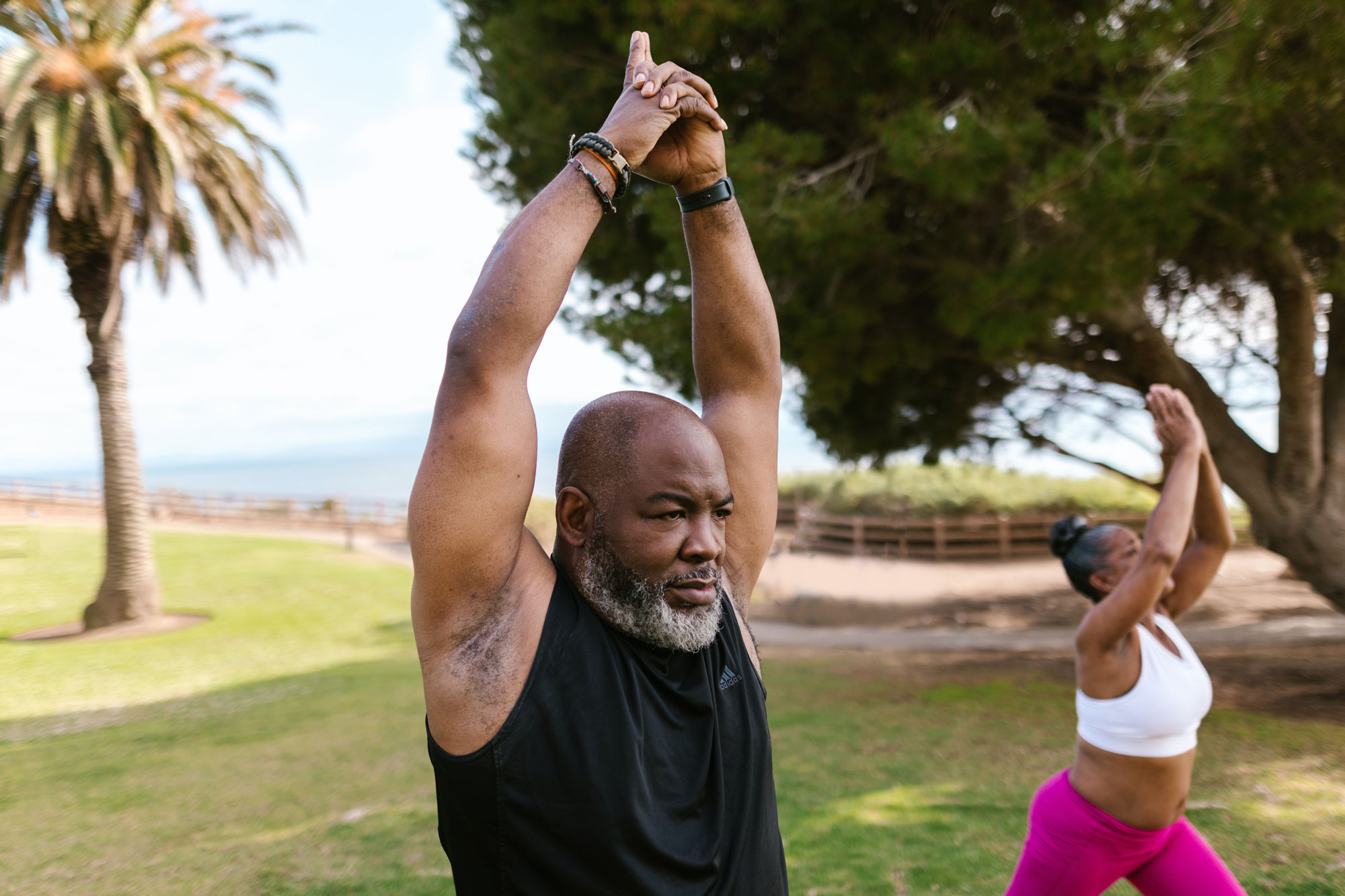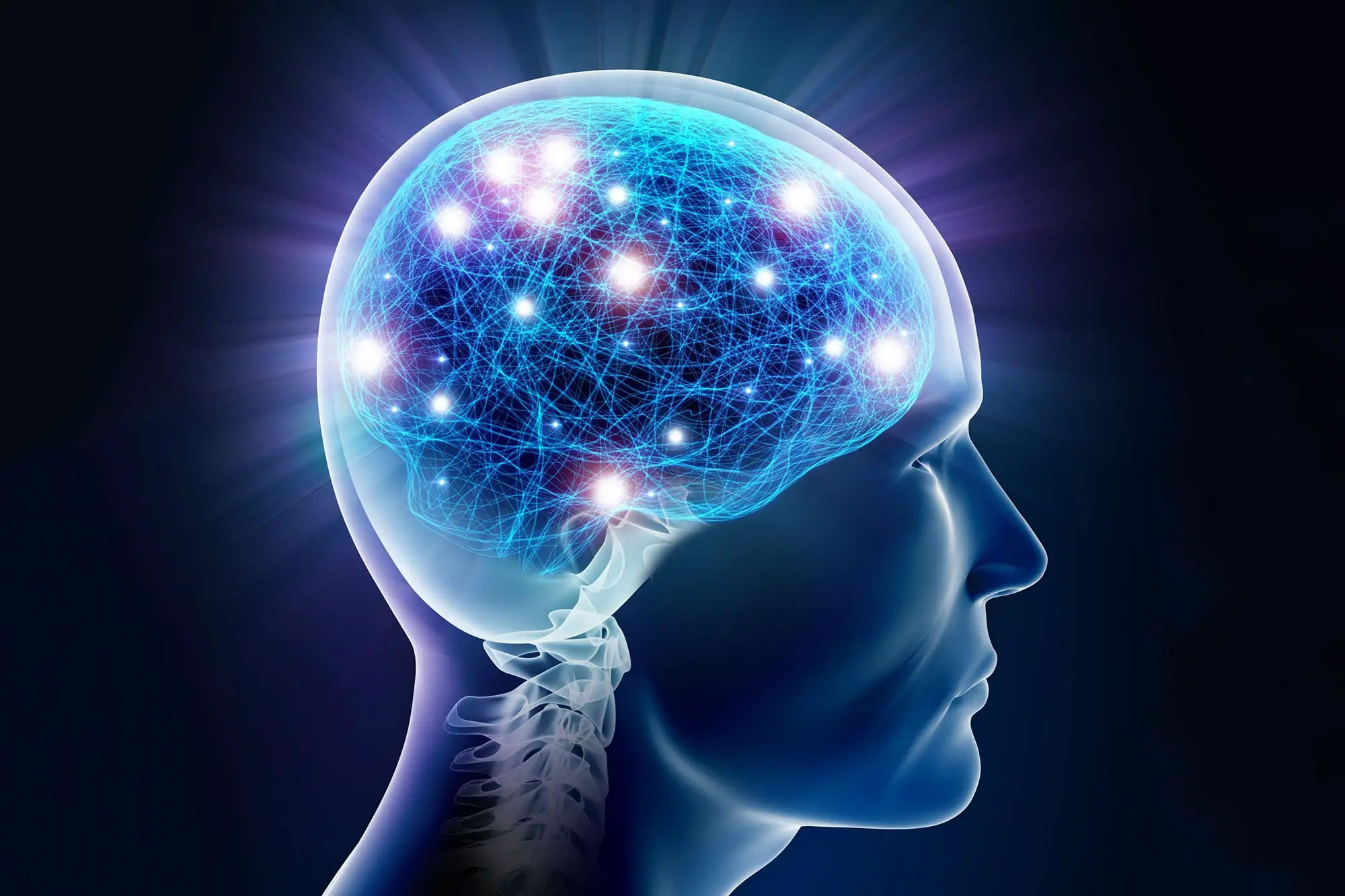Tailored Treatment for Lasting Recovery
The Heights Treatment Outpatient Program (OP)
What is the Supportive Outpatient Program?
The Heights Treatment outpatient treatment program consists of treatment for substance use and co-occurring disorders. The program includes two meetings per week for one hour of individual therapy and one hour of group or family therapy. With our outpatient programs, clients will learn awareness and coping skills through evidence-based therapeutic sessions.
These sessions are designed to help each individual restore healthy daily patterns and begin to build the present and future they truly desire for themselves.
As an adjunct to supportive outpatient, and in true Texan fashion, we offer Equine therapy facilitated by a doctor of psychology. And our Client Care specialist is a licensed chemical dependency counselor. Finally, thanks to our exclusive location, it is common for our clinicians to hold group (and individual) sessions nearby in the serene park or at the tranquil Plensa statues.

Supportive Outpatient Program at a Glance
Treatment Modality
Duration & Frequency
Conditions Treated
Group OR Family therapy
Individual therapy

How (and Why) Supportive Outpatient Works
Supportive Outpatient provides a safe, stable, and structured environment to facilitate the recovery process.
Through evidence-based mental health therapies, peer support, medication management, and family therapy, The Heights Treatment team is adept at addressing numerous substance abuse issues, mood disorders, and mental health conditions.
Efficacy of Supportive Outpatient Programs
In a study of community-based clinics providing intensive outpatient care and regular outpatient care for opioid-dependent African Americans, both groups were more likely to continue treatment, less likely to use substances, and had a higher quality of life.
Also, in a variety of studies reviewed by the NIH, inpatient treatment was found to be effective for patients with alcohol use disorders, alcohol dependence, and substance use disorders. That said, the efficacy of outpatient treatment also depends on the individual’s diagnosis and whether they’ve previously received inpatient treatment. Because there are so many variables, The Heights Treatment team customizes each treatment plan to the individual’s needs.
The Heights Treatment Houston Outpatient Team
Click on the links below to learn about the outpatient program staff in Houston.
What Our Houston Outpatient Alumni Are Saying
Healing Through Recovery-Driven Modalities
With our outpatient programs, clients will learn awareness and coping skills through evidence-based therapeutic sessions. These sessions are designed to help each individual restore healthy daily patterns and begin to build the present and future they truly desire for themselves.

Cognitive Behavioral Therapy (CBT)
Cognitive behavioral therapy explores the correlation between one’s thoughts and behaviors. The CBT therapists at The Heights Treatment help the client to discover where self-destructive behaviors and unhealthy patterns stem from, and help to change the behavior.
CBT has been clinically proven to be effective for several mental health conditions, including mood disorders, anxiety disorders, eating disorders, schizophrenia, and bipolar disorder.

Eye Movement Desensitization & Reprocessing (EMDR)
For over 35 years, Eye Movement Desensitization and Reprocessing (EDMR) has helped patients suffering from the trauma of past experiences.
Initially designed to treat PTSD, EDMR is a structured hand-eye-movement therapy that engages the mind and the eyes while experiences and emotions are processed.
Along with PTSD treatment, EMDR is helpful for treating a variety of anxiety disorders, emotional dysregulation disorders, and depression.

Art Therapy
Art therapy is a discipline that blends the mind’s creative process with more traditional psychotherapeutic techniques. Together, they advance the belief that all humans are naturally creative in some way.
The intent of art therapy is to help the person leverage the creative process to explore self-expression and to gain new insights and coping skills.
Art therapy has proven to be a successful modality with many different mental health conditions, including schizophrenia, depression, and anxiety.

Mindfulness
Mindfulness is a therapeutic approach that promotes living moment-to-moment instead of dwelling on the past or worrying about the future. Mindfulness results in patients being attuned to their thoughts without assigning negative judgements or issuing automatic responses.
This modality is designed to help clients cope with their thoughts and feelings to stabilize moods, reduce racing thoughts, and ease anxiousness.
Mindfulness has proven beneficial for clients with Borderline Personality Disorder, PTSD, C-PTSD, generalized anxiety, and Obsessive-Compulsive Disorder.

Equine-Assisted Psychotherapy
EAP is a therapeutic process involving a client’s interaction with horses without having to ride them. This process promotes self-discovery, learning assistance, emotional resilience, and the development of social and life skills.
Horses are acutely aware creatures that are highly responsive and intuitive. These qualities enable them to easily pick up on emotional cues from humans.
It’s an experimental therapy designed to enhance physical and emotional healing.
Therapeutic applications include mental health conditions such as anxiety, depression, and PTSD. It is also effective with behavior health disorders and substance abuse. We’re excited to offer this service at our mental health treatment center in Houston.

Trauma-Informed Yoga
Trauma-Informed Yoga explores this connection through physical positions that promote balance and harmony within the mind.
Through traumatic events, the body often restricts its mind-body connection. To be trauma informed is to assume each participant has some form of trauma in their life and offers space to heal the mind-body connection.
Our Trauma-Informed Yoga leaders uphold a client and compassionate space to advance immersion into emotions and experience

The Daring Way
The Daring WayTM is a training and certification program based on the research of Dr. Brene Brown. This courage-building approach was designed to help professionals, individuals, families, and groups explore their associations with vulnerability, courage, shame, and worthiness.
The intent of this methodology is to develop resilience skills and healthy daily habits that improve life, love, and how one leads or parents to create a wholehearted and authentic way of life.

Neurofeedback
Neurofeedback (also known as EEG Biofeedback) is a non-invasive method for re-educating the brain. The purpose is to help it perform in a more healthy and balanced way without prescription medications.
EEG teaches brain functions to self-regulate by feeding it audio or visual feedback and helping it learn to alter between a relaxed state and an aroused state consistently and smoothly.
EEG biofeedback has several clinical applications, including depression, anxiety, PTSD, ADHD and ADD, and substance addictions. Insomnia, Autism Spectrum Disorder (ASD), TBIs or head injuries, seizures, strokes, and enhancing performance or meditation have also seen relevant applications.
Continuum of Care
At The Heights Treatment, we strongly believe that there is no “one-size-fits-all” approach to treatment for mental health issues, substance use disorders, or co-occurring diagnoses.
Every client who undergoes treatment at The Heights Treatment first completes a pre-assessment. Based on this assessment, the Clinical Director and Treatment Team determine the appropriate Level of Care for the client.
Once the appropriate level of care is determined, the care each client receives is individualized based on:
- The results of the client’s multidimensional biopsychosocial assessment based on ASAM Criteria
- The client’s perceived needs
- The determination of the multidisciplinary treatment team
When the client has completed the goals on their treatment plan and/or has stabilized in recovery to such an extent that they can complete the treatment process at a less restrictive level of care, the client will transition to a lower LOC.
ASAM Assessment and the Continuum of Care
The ASAM Criteria is the most widely used and comprehensive set of guidelines for placement, continued stay, transfer, or discharge of patients with addiction and co-occurring conditions.
Using the ASAM Criteria in conjunction with our The Heights Treatment clinical staff’s professional judgment enables us to provide outcome-oriented, results-based care in our addiction treatment.
ASAM outlines various levels of care based on the outcome of the 6 ASAM dimensions assessment. These levels of care are on a scale ranging from 0.5 to 4, with 4 being the most intensive.
At The Heights Treatment, when the client has completed the goals on their IIP treatment plan and/or has stabilized in recovery to such an extent that they can complete the treatment process at a less restrictive level of care, such as our Outpatient Program, the client will transition to a lower LOC.
Continuum of Care at a Glance
Prevention/Early Intervention
Targets individuals at risk to prevent substance abuse through education and early support.
Outpatient
Participants live at home and attend regular treatment sessions, suitable for mild conditions
Intensive Outpatient/Partial Hospitalization
More frequent sessions than outpatient, blending intensive care with community living.
Residential/Inpatient
24/7 care in a live-in facility, offering structured treatment for severe addictions.
Intensive Inpatient
Highly structured, intensive care in a hospital setting for the most severe cases, including medical detox and stabilization.
Frequently Asked Questions about OP Houston
What services are included in The Heights Treatment Outpatient Program?
The Heights Treatment Outpatient Program (OP) in Houston includes a combination of individual therapy, group or family therapy sessions designed to treat substance use and co-occurring disorders. Clients attend two meetings per week, focusing on gaining awareness and coping skills through evidence-based therapeutic sessions. The program aims to help individuals restore healthy daily patterns and build a fulfilling future.
Who is the Houston Outpatient Program designed for?
The OP is tailored for individuals who are not currently dependent on substances and have achieved sobriety but require ongoing support, treatment, and accountability to maintain their recovery. It’s ideal for those looking to reintegrate into everyday life while continuing their therapy, offering a blend of structure and flexibility.
How does the Outpatient Program incorporate experiential therapy?
In addition to traditional therapy sessions, The Heights Treatment OP includes experiential therapies like Equine therapy, facilitated by a doctor of psychology, to enhance the recovery experience. These sessions, often held in serene parks or at tranquil locations like the Plensa statues, provide unique opportunities for emotional growth and healing outside the conventional therapy setting.
Can the Outpatient Program address dual diagnoses?
Yes, the Outpatient Program is equipped to handle dual diagnoses or co-occurring disorders. Through a comprehensive approach that includes evidence-based mental health therapies, medication management, and family therapy, the program addresses a wide range of substance abuse issues, mood disorders, and mental health conditions, providing a structured environment to facilitate the recovery process.


